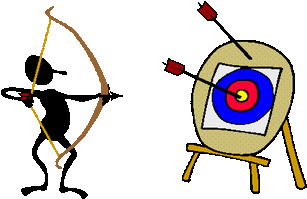
The Merriam Webster dictionary defines happiness as good
fortune, prosperity, a state of well-being and
contentment. Many of us often
become so preoccupied with attaining and retaining this state of being, that we end up feeling dissatisfied, and filled with the very negative emotions we try
to avoid. As the American psychologist pioneer, William James pointed out, “How to gain, how to keep, how to recover, happiness, is in fact for most men at all times, the secret motive for all they do.” Yet, is this a productive aim?
There is no doubt that happiness is worth pursuing, for as we know and research confirms, happpiness tends to color everything in our lives and even predict our future success.
When we feel happy, we tend to see the world more favorably, people tend to seem friendlier to us, we feel more confident and assured in our decisions. Happiness makes us perceive ourselves healthier; it energizes us, makes us more prone to take on new responsibilities and reach for our goals. Moreover, happy thoughts stimulate creativity, improve our self-image and contribute to make our relationships more satisfying.
Yet happiness is by no means a constant state; most of us can feel happy and miserable several times during the course of only one day. In fact, it has been shown that more positive emotions which are more typical in the early morning and tend to peak at midday, appear to give way to more negative emotions by the evening. The latter often increase throughout the day, as we deal with daily hassles and stressful daily events, and they, in
turn, peak in the evening going back down again and giving way to more positive emotions by the end of the night. As an old African proverb states: “However long the night, the dawn will break”, most people report a much-improved mood, often better than usual, after rebounding from a “bad day”.
Additionally, if it is true that happiness can promote creativity and lead us to more productive and healthier lives, such negative emotions as frustration, anger, and even sadness may also spring us into action and give us the push necessary to effect change. They can make us take charge of our own lives and lead us to change ourselves and the
world around us. Frustration, disgust, anger, neglect, and other emotional “maladies” can not only push us to seek guidance and modify ineffective or dysfunctional ways of behaving and thinking, but they can also prompt us to become involved in charitable activities and social causes. Recent liberation movements in the Middle East, the Occupy movement and the Tea Party movement are recent examples of this.
Thus, happiness or pursue of happiness alone, may not always be the propeller of progress and success. If we take into consideration the research on “flow”, defined as a state of complete involvement and focused attention, as well as diminished awareness of self and time that results from optimal engagement of one’s skills and is accompanied by a high sense of well being, perhaps instead of searching for happiness, our goal could be a more
productive one. Maybe, instead of a pursuing happiness, what we really need is to strive for purpose and remain mindful (a state of intended and focused attention) of whatever state we are in. Perhaps then, we, like Paul, apostle to the Gentiles in the New Testament, may
be able to able to learn “to be content in whatsoever state we are, knowing
both, how to be abased and how to abound”. Moreover, the understanding that not
only these states are temporary, but they can also be meaningful and produce a
fruit in our lives and the lives of others may help us live more a fulfilling
and meaningful existence.
 RSS Feed
RSS Feed
